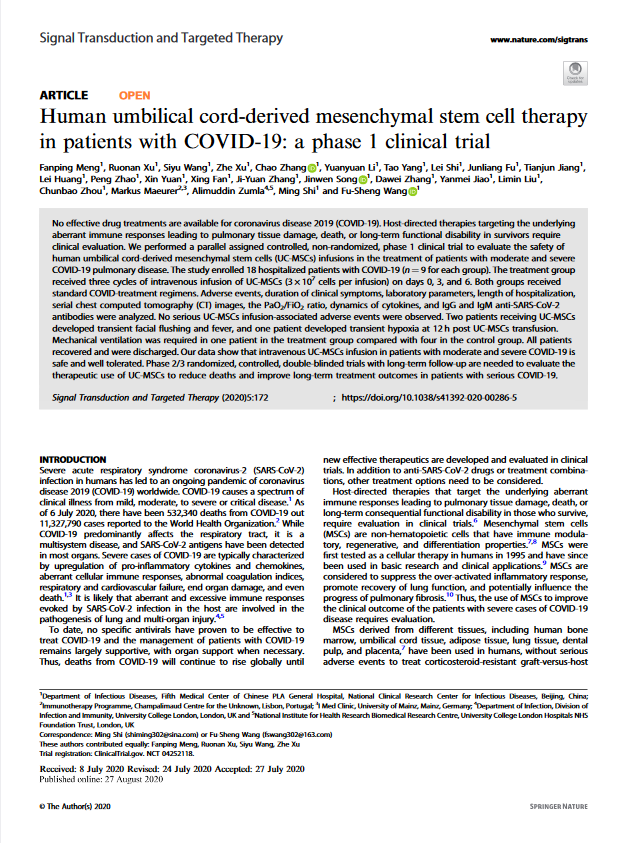11.12.2020
Human umbilical cord-derived mesenchymal stem cell therapy in patients with COVID-1
Signal Transduct Target Ther., 2020
Abstract
No effective drug treatments are available for coronavirus disease 2019 (COVID-19). Host-directed therapies targeting the underlying aberrant immune responses leading to pulmonary tissue damage, death, or long-term functional disability in survivors require clinical evaluation. We performed a parallel assigned controlled, non-randomized, phase 1 clinical trial to evaluate the safety of human umbilical cord-derived mesenchymal stem cells (UC-MSCs) infusions in the treatment of patients with moderate and severe COVID-19 pulmonary disease. The study enrolled 18 hospitalized patients with COVID-19 (n = 9 for each group). The treatment group received three cycles of intravenous infusion of UC-MSCs (3 × 107 cells per infusion) on days 0, 3, and 6. Both groups received standard COVID-treatment regimens. Adverse events, duration of clinical symptoms, laboratory parameters, length of hospitalization, serial chest computed tomography (CT) images, the PaO2/FiO2 ratio, dynamics of cytokines, and IgG and IgM anti-SARS-CoV-2 antibodies were analyzed. No serious UC-MSCs infusion-associated adverse events were observed. Two patients receiving UC-MSCs developed transient facial flushing and fever, and one patient developed transient hypoxia at 12 h post UC-MSCs transfusion. Mechanical ventilation was required in one patient in the treatment group compared with four in the control group. All patients recovered and were discharged. Our data show that intravenous UC-MSCs infusion in patients with moderate and severe COVID-19 is safe and well tolerated. Phase 2/3 randomized, controlled, double-blinded trials with long-term follow-up are needed to evaluate the therapeutic use of UC-MSCs to reduce deaths and improve long-term treatment outcomes in patients with serious COVID-19.
In this study, inflammatory cytokines (IL-6, IFN-γ, TNF-α, MCP-1, IP-10, IL-22, IL-1RA, IL-18, IL-8, and MIP-1α) were tested using Aimplex kits (Aimplex Bioscience Inc).
>> View article


